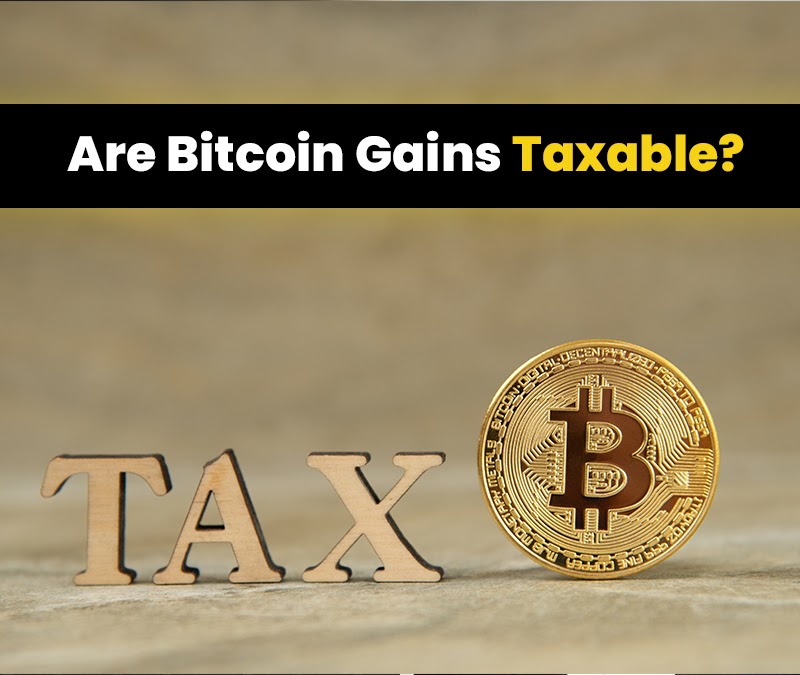The question on many people’s lips is whether Bitcoin gains are taxable. This is a great question for anyone looking to enter, or already involved in crypto trading. The answer, though, depends on where you might live. Let’s take a look at several different views on how Bitcoin, and cryptocurrencies, should be taxed, and what countries enforce which laws.
How Can Bitcoin Be Taxed?
Some countries view Bitcoin as a currency, while others look at it as property and assets. As each country takes strides to establish exactly how they want to define the digital asset, some are making more strides than others. As the responsibility lies on the individual to pay tax, the same applies for researching the tax laws in your own jurisdiction. Always consult with a professional if unsure.
How Different Countries Tax Crypto
As mentioned earlier, each country has established their own tax regulations. Here’s a glimpse into a few of them:
Germany

Probably offering one of the most unique approaches to taxing cryptocurrencies, Germany only requires tax on profits made within a year. So if you were to buy Bitcoin and sell within 365 days, you will be liable to 25% capital gains tax on those profits. However, if you sell anytime after that, you are not liable to pay tax on that.
United States

In the United States, the IRS has labelled cryptocurrencies as property. This means that traders are liable to capital gains tax on both profits and losses. Traders are required to report this and pay what is liable. If you made losses, you are able to claim these off your fiat tax bill.
Israel

This crypto forward country considers crypto as an asset liable to 25% capital gains tax.
Switzerland

Switzerland looks at crypto in three different ways. Professional traders are subject to business tax while crypto mining is treated as self-employment tax. Individuals who trade and invest are not liable for capital gains tax. Switzerland also allows citizens to pay their taxes in Bitcoin and Ethereum in some particularly crypto forward regions.
Singapore

Individuals and businesses holding crypto for long term investments are not liable to pay capital gains tax.
United Kingdom

In the U.K., all tax is handled by their internal department called Her Majesty’s Revenue and Customs (HMRC). This regulatory body considers crypto to be a forgien currency, subjecting traders to pay tax on profits and losses. Their laws surrounding these are somewhat confusing, so if you reside in the U.K. we would highly recommend talking to a tax advisor clued up in crypto.
Japan

Japan has long since had a reputation for being particularly crypto forward, and their tax laws are no different. Japan’s National Tax Agency considers crypto to be a payment method. It is considered to be “asset-like values” and liable to business income tax on all trading profits.
Portugal

In Portugal, individuals are exempt from paying personal income tax on trading, however businesses are subject to pay tax on all crypto trading profits.
Malta

Another crypto forward country, traders are not liable to paying tax on buying and holding, however day trading is liable to business income tax.
What Is Considered A Taxable Crypto Activity?
Generally, obviously each country may have varying laws, traders are liable to report and pay taxes on the following activities:
- Trading crypto for crypto, like buying ETH with LTC
- Selling crypto for fiat, like selling BCH for GBP
- Paying for goods and services with crypto, like buying a car with BTC
- Collecting crypto for mining or staking activities
- Collecting crypto as a result of a fork
However, the following activities are exempt from paying taxes:
- Buying crypto with fiat, like buying BTC with USD.
- Holding crypto
- Making a donation with crypto to a tax-exempt charity
- Sending crypto to another user as a gift (check gift tax in your area)
- Moving crypto from one personal wallet to another
Are Bitcoin Gains Taxable?
The long and short of it is yes, in most countries. It’s important to check in your area, and seek advice from a trained professional. Paying taxes is an important part of a country’s operation, and should not be taken lightly. Not paying your taxes can often result in heavy fines and even jail time. Now that you’re clued up on the basics of crypto and tax, take the next step and find out the particular laws in your area.


